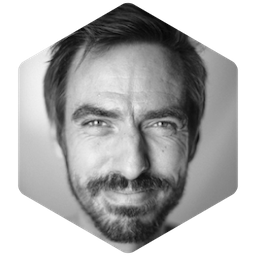When we hear about leadership, we typically imagine the strong leaders standing up, taking a stance and showing the way. Leadership often assumes a title and authority to stand above others. This view of leadership isn’t likely to go away any time soon, as it’s deeply ingrained in history and culture. It is of course not incorrect, yet in today’s context, this view of leadership has become outdated and far too narrow. I have been curious to start an exploration on what is at the heart of leadership, and how could we look at leadership in a more multifaceted way.
What is leadership?
There are many definitions of what leadership is in multiple contexts, but there are some consistent themes(Ref). Typically, these components are essential:
- A level of influence, social influence, rather than authority and power
- Other people, in order to influence someone, but this does not imply any direct reporting relationship (not a manager)
- A vision and goal, as leadership is not accidental, but intentional
- Initiative, not merely executing on a vision or goal, but taking personal initiative to go beyond obvious expectations
- Accountability and responsibility, which may be the most controversial point if we listen to daily news, but to genuinely lead you inevitably must take a level of responsibility and be accountable for your choices and actions.
A different perspective
With this in mind, there may be many people in some form of leadership role that are not typically recognised as a leaders, and probably many assumed to be leaders that actually lack the core qualities of true leadership.
Imagine the following examples:
- Activists (e.g. Malala, Greta Thunberg) — Often doing the inconvenient, to get our attention, sometimes at their own expense. They create debate and engage a lot of people topics that matters to all of us.
- Comedians (e.g. John Oliver, Trevor Noah, Hassan Menaj) — Understanding the complex landscape of global, political, economic, social events is really hard, especially in the context of world leaders claiming “fake news” etc. Although comedians are often biased, they are typically transparent to us about their biases, and they help us translate complexity into something we can relate to whether we agree with them or not.
- Guardians of knowledge (e.g. Jimmy Wales, Noam Chomsky, Shekar Gupta) — By working diligently for our rights to factual data and information, representing deep knowledge and translating this in easily accessible manner so that we can create an opinion about what to believe.
- Most importantly, the invisible all around us (e.g. the barber or barista that contribute to building local communities, the farmer who chooses to deliver organic produce straight to the end customer, the youtuber who opens our world to a new perspective, the craftsman who diligently refines and shares his craft, the volunteers of the local community sports club) — They take initiatives to cultivate communities, challenge our thinking, act as catalysts for positive change (at least some of them), improve themselves for the benefit of others, guide, coach, mentor people to grow.
Irrespective of how recognised they may be, it is worth exploring the significance of such non-obvious roles of leadership, and sometimes challenge those with formal leadership titles to be accountable for leadership they represent.
This is a starting point for me to explore a new perspective on leadership, and dig a bit further into what a 21st century view of leadership might look like. In order to so, however, I think it’s important to first challenge what leadership is (including my own interpretation) and perhaps why present days leaders don’t fully live up to the kind of leadership needed (some food for through from Umair Haique), in a world of climate change, fake news, isolationism and polarisation etc. I don’t expect to have all the answers, but hope to share my ideas and engage a few people in discussion, to explore the topic.
(Ref) Inspired by Kevin Kruse — What is leadership?, Lolly Daskal — 100 Answers to the Question: What Is Leadership? and bits and pieces of personal experience.








